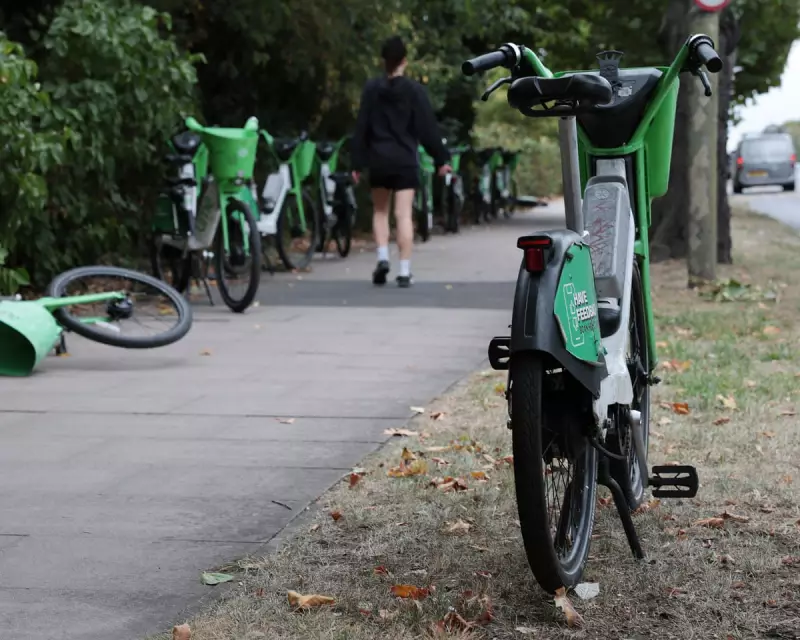
A bitter parking feud is causing chaos on London's pavements, as rival e-bike hire firms have been accused of deliberately abandoning their bikes at borough borders to sabotage competitors and create logistical nightmares.
The controversial tactic, described by industry insiders as 'border dumping', sees hire bikes from one company placed just outside their approved operating zone. This forces rival firms, who are licensed to operate in that area, to deal with the illegally parked vehicles, incurring costly collection fees and maintenance headaches.
The Blame Game Escalates
Santander Cycles, the official Transport for London (TfL) scheme, has pointed the finger squarely at its private rivals. A TfL spokesperson revealed that a significant number of bikes from other operators are being left at the edges of the Santander Cycles' service area, particularly in locations like the City of London and Canary Wharf.
This forces the TfL-contracted maintenance team, Serco, to collect the rogue bikes. The process is not only expensive but diverts crucial resources away from servicing its own fleet, potentially leading to more broken or poorly maintained bikes for users.
Private Operators Fight Back
Private e-bike companies, including giants like Lime and HumanForest, vehemently deny the allegations. They argue that the core of the problem lies with TfL's own restrictive policies and the design of the Santander Cycles scheme.
They claim the issue is a direct result of 'geofencing', where a rider's journey is automatically ended if they cross out of a designated zone, effectively stranding the bike. Operators argue that TfL should expand its service area to match the wider 'London-wide' permits they themselves operate under, creating a more unified and user-friendly system.
Commuters Caught in the Crossfire
Ultimately, it is London's commuters and residents who suffer. The practice leads to:
- Cluttered Pavements: Bikes obstructing pathways, creating issues for pedestrians, especially those with disabilities or pushchairs.
- Reduced Reliability: Maintenance teams stretched thin, meaning bikes are less likely to be charged or repaired promptly.
- User Confusion: Riders facing fines for parking in incorrect locations due to confusing and overlapping zone rules.
Transport for London is now reviewing its e-bike licensing regulations, hoping to find a solution that encourages cooperation rather than conflict between operators, before the city's pavements become a full-blown battleground.





